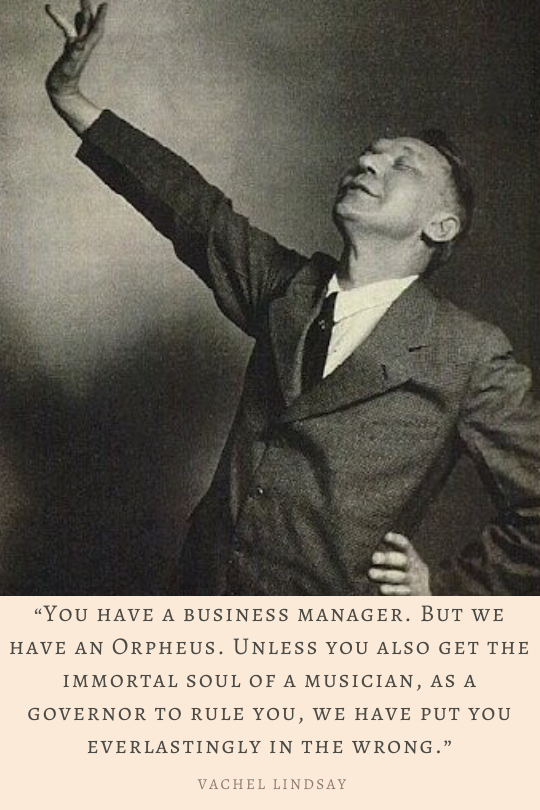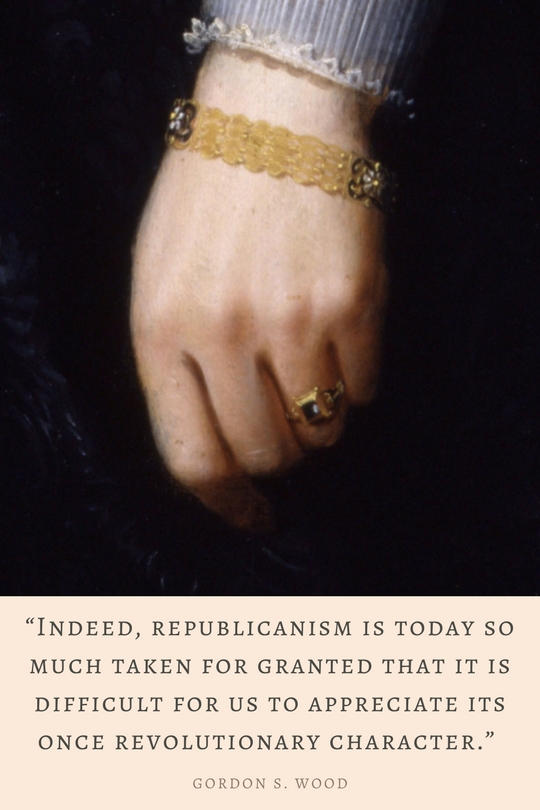Eliphas Levi’s “Warning to the Impudent” on Occultism
Éliphas Lévi (Alphonso Louis Constant), 19th century French priest influenced by occult philosophy and thinkers like Joseph de Maistre, warns impudent students rushing into occult studies.
[Translated by Arthur Edward Waite in Transcendental Magic, 1896]
If there are two lessons to take from this, they are —
- Occultism is not an occupation. Contribute to society. Find a career.
- There are Rules. There are dangers.† There are laws. Don’t be naive.
“The Esotericists are therefore warned that unless they are prepared to take everything in the spirit of truth and nature, and forget the code of false propriety bred by hypocrisy and the shameful misuse of primeval functions, which were once considered divine—they had better not study Esotericism.” (Helena P. Blavatsky, Esoteric Instruction no. 1, Collected Writings, Vol. 12., pg. 514-515)
“The operations of science are not devoid of danger, as we have stated several times. They may end in madness for those who are not established firmly on the basis of supreme, absolute, and infallible reason. Terrible and incurable diseases can be occasioned by excessive nervous excitement. Swoons and death itself, as a consequence of cerebral congestion, may result from imagination when it is unduly impressed and terrified. We cannot sufficiently dissuade nervous persons, and those who are naturally disposed to exaltation, women, young people, and all who are not habituated in perfect self-control and the command of their fear. In the same way, there can be nothing more dangerous than to make magic a pastime, or, as some do, a part of an evening’s entertainment. Even magnetic experiments, performed under such conditions, can only exhaust the subjects, mislead opinions, and defeat science. The mysteries of life and death cannot be made sport of with impunity, and things which are to be taken seriously must be treated not only seriously but also with the greatest reserve. Never yield to the desire of convincing others by phenomena. The most astounding phenomena would not be proofs for those who are not already convinced. They can always be attributed to ordinary artifices and the magus included among the more or less skilful followers of Robert Houdin or Hamilton. To require prodigies as a warrant for believing in science is to shew one’s self unworthy or incapable of science. Sancta Sanctis. Contemplate the twelfth figure of the Tarot-keys, remember the grand symbol of Prometheus, and be silent. All those magi who divulged their works died violently, and many were driven to suicide, like Cardan, Schroppfer, Cagliostro, and others. The magus should live in retirement, and be approached with difficulty. This is the significance of the ninth key of the Tarot, where the initiate appears as a hermit completely shrouded in his cloak. Such retirement must not, however, be one of isolation; attachments and friendships are necessary, but he must choose them with care and preserve them at all price. He must also have another profession than that of magician; magic is not a trade (…)
The milder and calmer you are, the more effective will be your anger; the more energetic you are, the more precious will be your forbearance; the more skilful you are, the better will you profit by your intelligence and even by your virtues; the more indifferent you are, the more easily will you make yourself loved. This is a matter of experience in the moral order, and is literally realised in the sphere of action. Human passions produce blindly the opposites of their unbridled desire, when act without direction. Excessive love produces antipathy; blind hate counteracts and scourges itself; vanity leads to abasement and the most cruel humiliations. Thus, the Great Master revealed a mystery of positive magical science when He said, “Forgive your enemies, do good to those that hate you, so shall ye heap coals of fire upon their heads.” Perhaps this kind of pardon seems hypocrisy and bears a strong likeness to refined vengeance. But we must remember that the magus is sovereign, and a sovereign never avenges because he has the right to punish; in the exercise of this right he performs his duty, and is implacable as justice. Let it be observed, for the rest, so that no one may misinterpret my meaning, that it is a question of chastising evil by good and opposing mildness to violence. If the exercise of virtue be a flagellation for vice, no one has the right to demand that it should he spared, or that we should take pity on its shame and its sufferings.
The man who dedicates himself to the works of science must take moderate daily exercise, abstain from prolonged vigils, and follow a wholesome and regular rule of life. He must avoid the effluvia of putrefaction, the neighbourhood of stagnant water, and indigestible or impure food. Above all, he must daily seek relaxation from magical preoccupations amongst material cares, or in labour, whether artistic, industrial, or commercial. The way to see well is not to be always looking; and he who spends his whole life upon one object will end without attaining it. Another precaution must be equally observed, and that is never to experiment when ill.
The ceremonies being, as we have said, artificial methods for creating a habit of will become unnecessary when the habit is confirmed. It is in this sense, and addressing himself solely to perfect adepts, that Paracelsus proscribes their use in his Occult Philosophy. They must be progressively simplified before they are dispensed with altogether, and in a proportion to the experience we obtain in acquired powers, and established habit in the exercise of extra-natural will.” (Eliphas Levi, tr. Arthur Edward Waite, Transcendental Magic, 1896 ed., pp. 248-50)
† Helena P. Blavatsky, Esoteric Instruction no. 1, Collected Writings, Vol. 12., pg. 514-515: “There is a strange law in Occultism which has been ascertained and proven by thousands of years of experience; nor has it failed to demonstrate itself, almost in every case, during the fifteen years that the T.S. has been in existence. As soon as anyone pledges himself as a “Probationer,” certain occult effects ensue. Of these the first is the throwing outward of everything latent in the nature of the man: his faults, habits, qualities, or subdued desires, whether good, bad, or indifferent.
For instance, if a man is vain or a sensualist, or ambitious, whether by Atavism or by Karmic heirloom, all those vices are sure to break out, even if he has hitherto successfully concealed and repressed them. They will come to the front irrepressibly, and he will have to fight a hundred times harder than before, until he kills all such tendencies in himself.
On the other hand, if he is good, generous, chaste, and abstemious, or has any virtue hitherto latent and concealed in him, it will work its way out as irrepressibly as the rest. Thus a civilized man who hates to be considered a saint, and therefore assumes a mask, will not be able to conceal his true nature, whether base or noble.
THIS IS AN IMMUTABLE LAW IN THE DOMAIN OF THE OCCULT.
Its action is the more marked the more earnest and sincere the desire of the candidate, and the more deeply he has felt the reality and importance of his pledge.
Therefore let all members of this School be warned and on their guard; for even during the three months before the esoteric teaching began several of the most promising candidates failed ignominiously.
The ancient occult axiom, “Know Thyself,” must be familiar to every member of this School; but few if any have apprehended thereal meaning of this wise exhortation of the Delphic Oracle. You all know your earthly pedigree, but who of you has ever traced all the links of heredity, astral, psychic, and spiritual, which go to make you what you are? Many have written and expressed their desire to unite themselves with their Higher Ego, yet none seem to know the indissoluble link connecting their “Higher Egos” with the One Universal SELF.
For all purposes of Occultism, whether practical or purely metaphysical, such knowledge is absolutely requisite. It is proposed, therefore, to begin the esoteric instruction by showing this connection in all directions with the worlds: Absolute, Archetypal, Spiritual, Mânasic, Psychic, Astral and Elemental. Before, however, we can touch upon the higher worlds—Archetypal, Spiritual, and Manasic—we must master the relations of the seventh, the terrestrial world, the lower Prakriti, or Malkhuth as in the Kabala, to the worlds or planes which immediately follow it.
It is clear that once the human body is admitted to have direct relation with such higher worlds, the specialization of the organs and parts of the body will necessitate the mention of all parts of the human organism without exception. In the eyes of truth and nature no one organ is more noble or ignoble than another. The ancients considered as the most holy precisely those organs which we associate with feelings of shame and secrecy; for they are the creative centers, corresponding to the Creative Forces of the Kosmos.
The Esotericists are therefore warned that unless they are prepared to take everything in the spirit of truth and nature, and forget the code of false propriety bred by hypocrisy and the shameful misuse of primeval functions, which were once considered divine—they had better not study Esotericism.”










